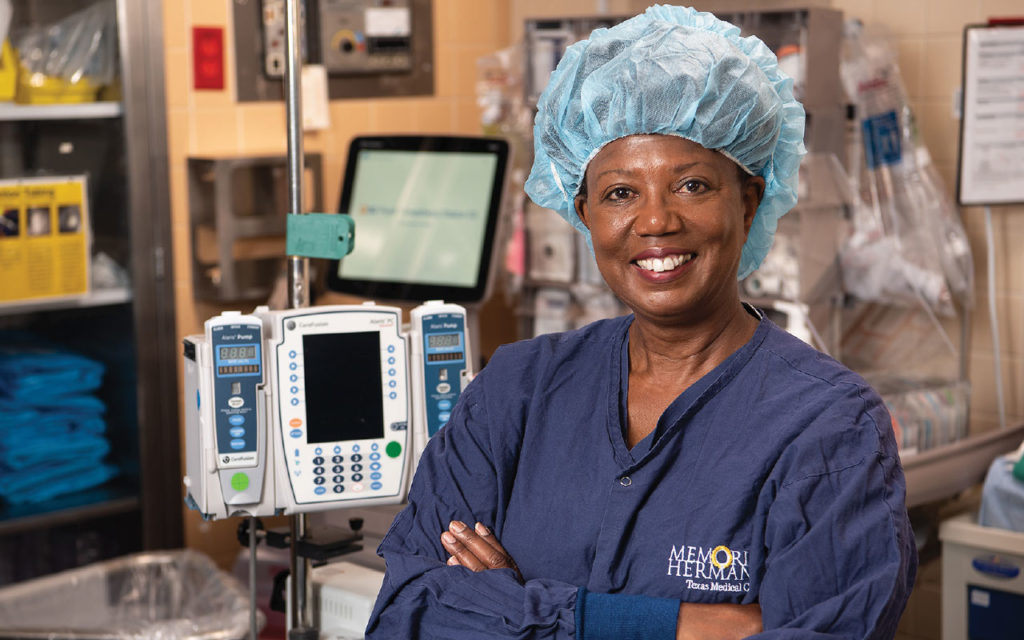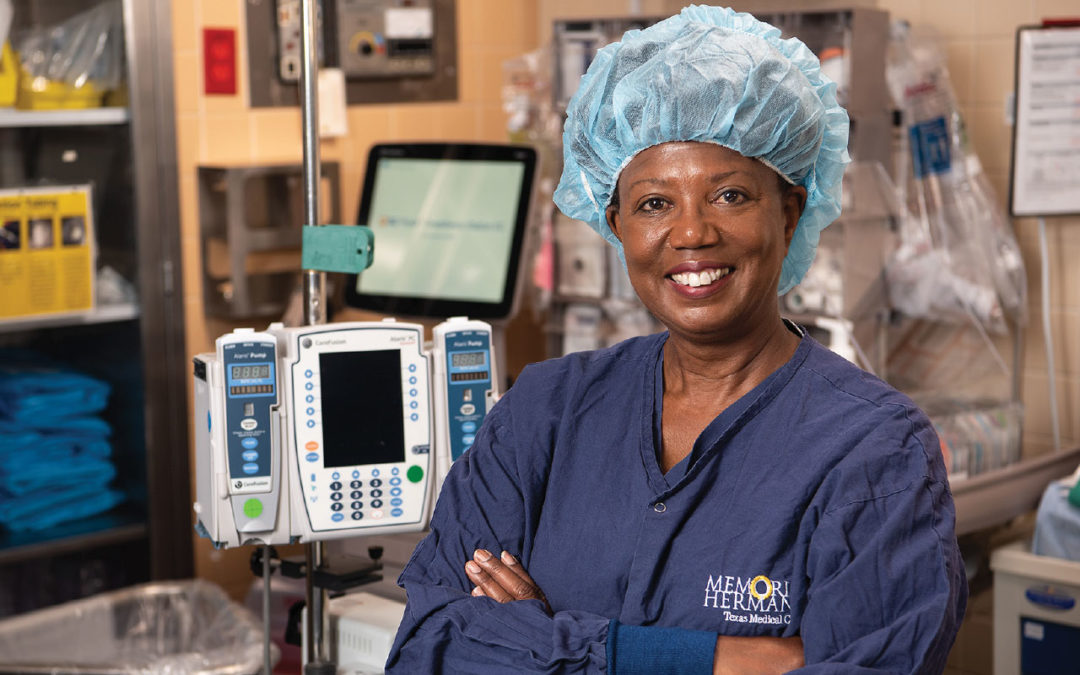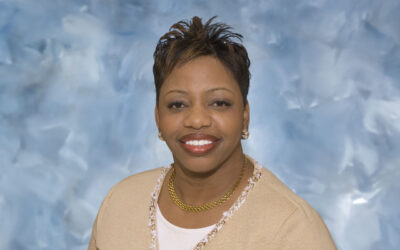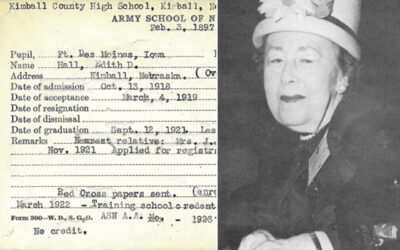
Growing up the youngest of three sisters in Laurel, Mississippi, Darlene Murdock remembers well the values her mother instilled in her from childhood: always do your best, don’t worry about what other people say about you, and work hard.
Murdock held down a job throughout high school – full-time in the summer, part-time during the academic year – but she was equally devoted to her studies. When an advisor told her she’d have to relocate to find better career opportunities, Murdock decided to pursue a business administration degree at the University of North Carolina. But it wasn’t until she produced the plane ticket that her mother actually believed she’d leave.
“In Mississippi 50 years ago, it was not a good place for Black people,” Murdock said. “My junior college teacher told me if I wanted to get a good job, I would have to leave Mississippi.”
“When my mother saw the plane ticket, she cried,” Murdock said. “It was a dream of both of ours; we just didn’t know how to make it come true. I was the first one in my family to finish college, so this was really a big deal for us.”
Murdock continued to work a full-time job throughout college to pay for her education (“While everybody was going off to parties, I was going off to work,” she recalled), but after graduation, she landed a career in banking in Houston, Texas. By then it was the 1980s, and “banking was rough,” Murdock said; “every month, I was worried about my job.”
One evening, while she was out on a double-date, Murdock met a nurse who told her there was much greater career stability in her profession than in banking. She mulled it over for a couple of months, and then enrolled at the University of Texas Health and Science Center in Houston to earn a nursing degree. Of course, Murdock maintained full-time hours working overnights in banking operations … which meant that she’d occasionally nod off during class.
“I do remember being called in the office and told that I couldn’t sleep through class, and maybe I should try something else,” she laughed. “I politely told her I pay my money to come here, not disturbing anybody, and as long as I’m making the grades, I should not have to quit. When I finished class, I got an award for the one who slept the most in class and had the highest GPA. They gave me a pillow and a box of No-Doze.”
If Murdock had been preparing all her life for the intensity of work in a hospital by holding down jobs and school, her secondary collegiate career taught her how to manage nursing duties and sleeplessness. Right after graduating, she began working at Memorial Hermann Hospital in the Texas Medical Center, one of the busiest Level I trauma centers in the nation. The ophthalmology nurses there “took me in and molded me, and made me feel part of a team,” Murdock said.
“I couldn’t decide between labor and delivery and the operating room, and a director during one of my clinicals pulled me to the side and said, ‘I want you to come here when you finish school,’ ” Murdock said. “I went to the operating room, and here I am. I’ve been an OR nurse 30 years, and at the same facility for 28 years.”
Murdock describes herself as having always been “a night person,” and when her son, Ryan, was born, she stayed with him days and continued to work nights. Among the benefits of taking those evening shifts, she was able to dedicate herself to working with the Association of periOperative Registered Nurses (AORN), first at her local chapter, and then, in 2018, at the national level. Today she is the national secretary for the association, an office she earned after having previously chaired its Neurosurgery, Orthopedics, and Trauma Specialty Assembly.
At the time she was seeking office, AORN had not had a Black member of its executive board in nearly a decade, and during her candidacy, “some unprofessional things [were] said to me,” Murdock recalled.
“I had somebody ask me, ‘How can you run for something?’ ” she remembered. “But I persevered and I won. The second year on the board, I did encounter a racial slur.”
For Murdock, who’d experienced moments of bias and negativity like these since childhood, it was nothing new, but no less frustrating. In June 2020, AORN released a statement “condemning racism, brutality, and senseless violence against Black communities, and took an internal review that brought us to the conclusion we can, and must, be doing more to include and represent people of color and other diverse backgrounds,” Murdock said.
“I just keep working at it,” she said. “You’ve just got to keep pinching at it, every little bit, to do your part. My mother has taught me to always do your best; don’t worry about what other people say about you, just do your best, and things will always go your way. And I’ve found that to be the truth.”
While that’s a fine personal motto, she also knows there’s institutional work to be done to chip away at unconscious bias in health care, and Murdock said she’s proud to be a part of the AORN response to those circumstances.
“A lot of people don’t know what is going on; they don’t know the health disparities,” she said. “And I think one way is to teach; to get it out on the table; to talk about how there’s not many Black doctors, there’s not many Black nurses, Indian nurses, Hispanic nurses.”
“It’s going to take time to get more diversity in health care, but in the meantime, we need to be educating everybody else, and addressing racism and unconscious biases up-front,” Murdock said. “Our organizations need to be teaching their employees about unconscious and conscious biases. Both of them definitely hurt.”
“I have been in Wal-Mart and people just assume I work there,” she said. “I have been in a room helping the surgeon position the patient, and he looks up, and asks, ‘Where’s the nurse?’ I said, ‘Oh, I guess I don’t look like a regular nurse, huh?’ ”
“I have to always go back to what my mother has taught me – be nice and respectful,” Murdock said. “I also find that when people are mean and you’re nice to them, in return, it makes them think twice.”
Murdock also mentors young nurses, helping them to develop the communication techniques that will help them confront similar situations in the future. Her leadership work also extends to chairing two magnet councils within the professional nurse advancement program at Memorial Hermann, whereby she helps nurses learn how to earn additional certifications.









